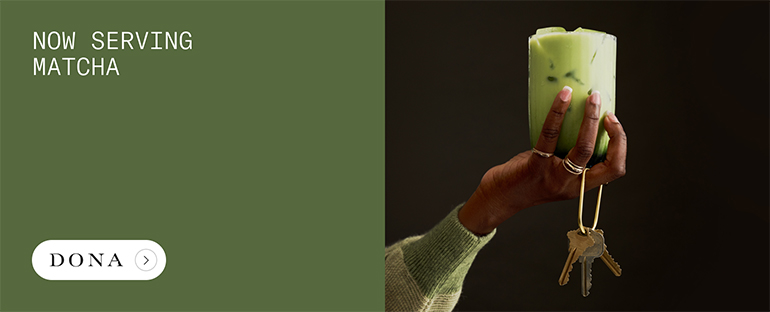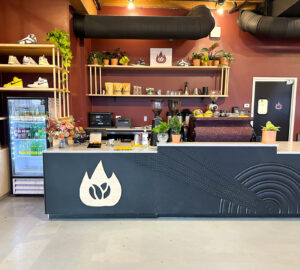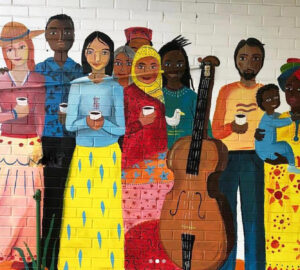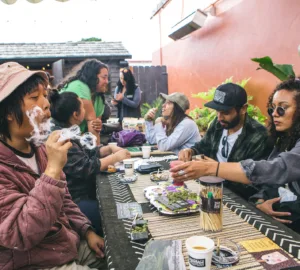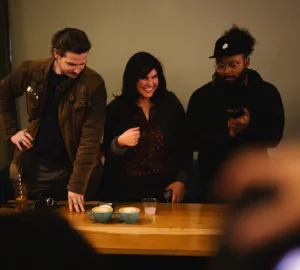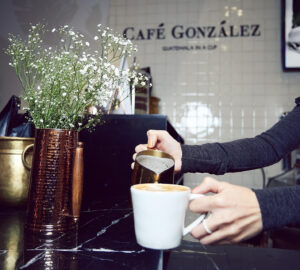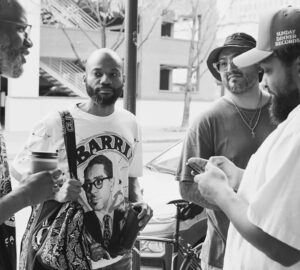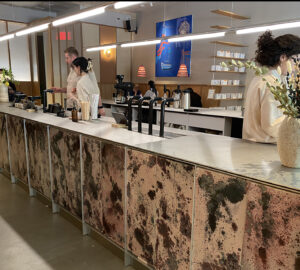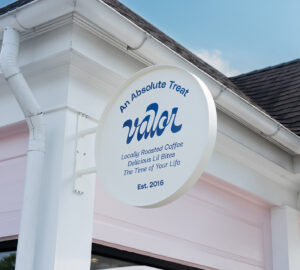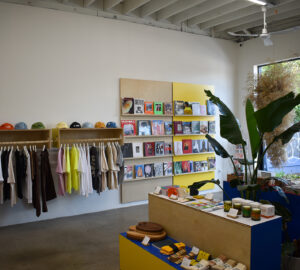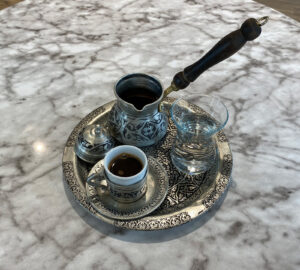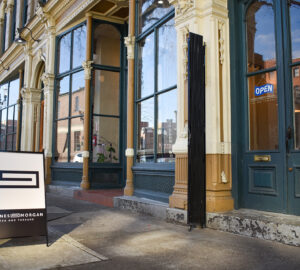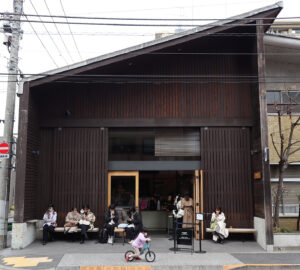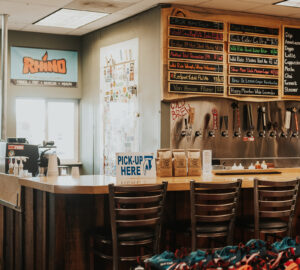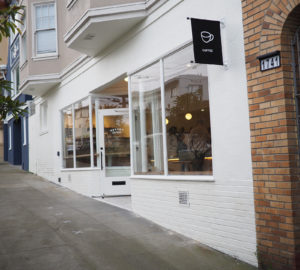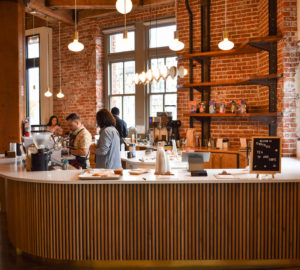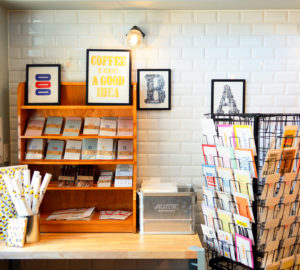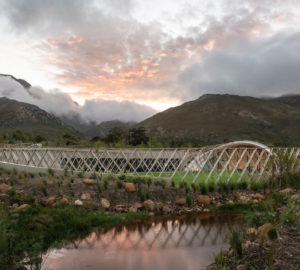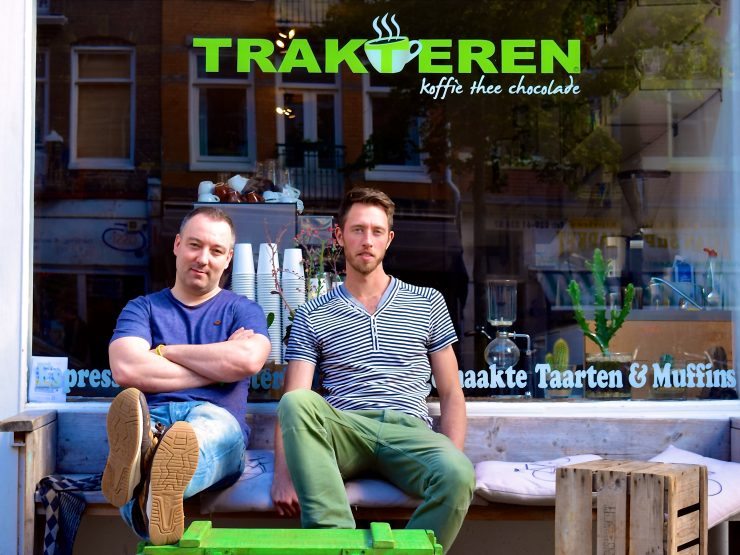
A friend who once taught English to KLM flight attendants found them exceptionally wide-eyed and eager, perhaps because most were in the very job they had wanted since they were little. So whenever I spot one of their silhouettes around Amsterdam—neatly coiffed, full-length swing coat creating a serene azure aura—I imagine that satisfaction of fulfilling a childhood occupational dream. It is easy to think the same about cafe owners whose command of the espresso bar is so strong and steadfast it appears to be the manifestation of some long-destined reality. But the truth is that is seldom the case in this new world of new wave coffee. No matter: as the founders of Trakteren in Amsterdam West have proved, dedication in the here and now makes up for not being born with a cupping spoon in hand.
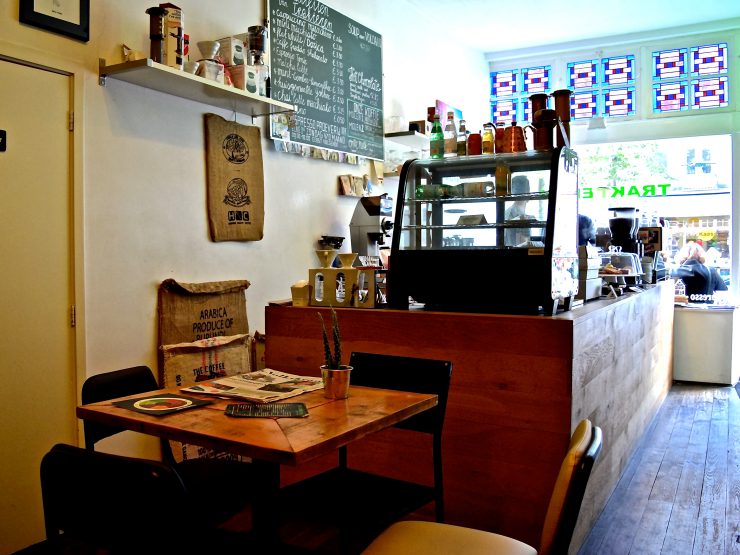
For Edward Beumer and Erik Oosterhuis, Trakteren’s owners, 2016 has been a banner year. In March, Beumer won the Dutch AeroPress Championship. It was a precious-metallic leap from Oosterhuis’s 2014 bronze trophy in the same competition, and a prelude to Beumer’s “not too shabby” fourth-place finish at the internationals in Dublin in June. That same month, Trakteren turned five, which is not only considerably old in the Netherlands’ nascent specialty coffee scene, but also a major benchmark for its celebrants, relative newcomers to the business.
Lately, customers’ orders have been for Beumer’s high-dose/short-extraction AeroPress, but Trakteren first became known for its global array of private label, single-origin coffees—today offering about a dozen roasted by Dutch Barista Coffee—loose-leaf teas, and chocolates. The shop’s name, after all, is a Dutch verb meaning “to treat.” Serving some of the most refined latte art in town, Trakteren has also become a destination for the shutterbugs of social media. “People come in and say: ‘I don’t care what I drink. I want a bear,’ ” says Oosterhuis good-naturedly.
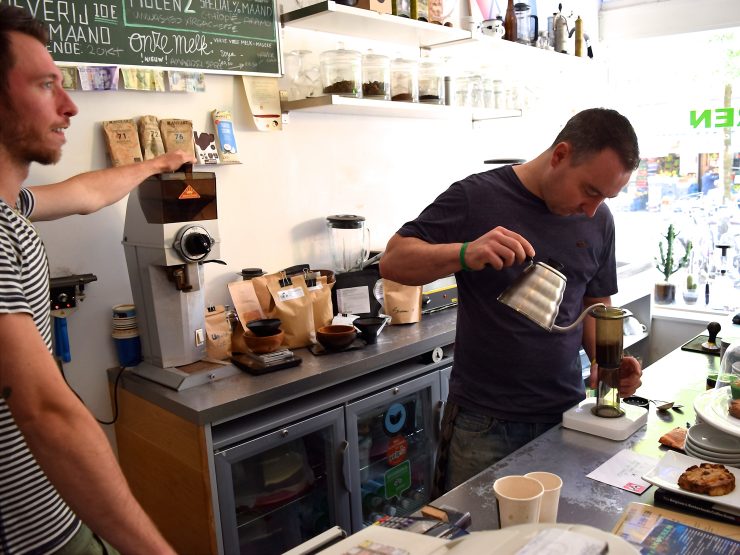
But to gain such multifaceted customer appreciation, Trakteren has been bullish, not bearish. When “the whole idea started in April 2010,” as they say, the two lifelong friends were in similar career ruts. Oosterhuis disliked being a traveling salesman, but marketing porcelain and gift items across the country opened his eyes to a trend: mixed retail and horeca shops that gave patrons a place to sit and sip the products they were buying.
“All the customers, they’d come and get a coffee and [experience how] there it was really different, much better. So I got a bit interested in coffee, and came to like these places too,” recalls Oosterhuis. He reported his observations to Beumer, who in the meantime had been convinced by finance-sector vending machines that all coffee was undrinkable. Soon, though, his opinion changed.
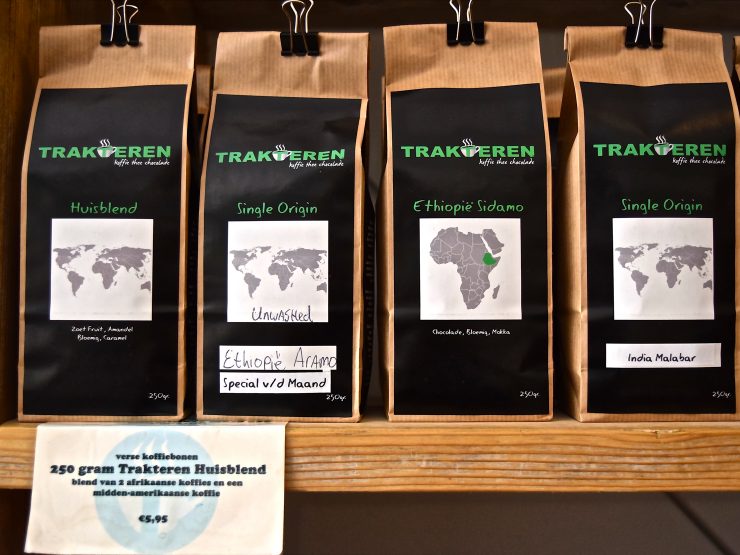
Attending the Beleef Koffie Beurs, a May 2010 industry expo in Utrecht, was transformative. They cite two master classes as “the foundations of what we are doing right now”: a course by 2009 World Latte Art champion Peter Hernou and an espresso bar startup session by Rob Berghmans, the owner of Caffènation in Antwerp, who came to advise Trakteren long-term on “basically everything.”
Visiting the expo’s Boot stand was “the moment that really opened our eyes,” says Beumer of tasting the brand’s famous Panamanian coffee. “It was so rich and it was so full and it was so strong.”
But the pair were also put in their place. The elder Boot brother “was seeing right through us,” Beumer remembers with pained laughter. “Have you ever held a portafilter?” Barend Boot asked them. “We’re like, ‘Yeah, sure.’ But we’d never touched a portafilter.”
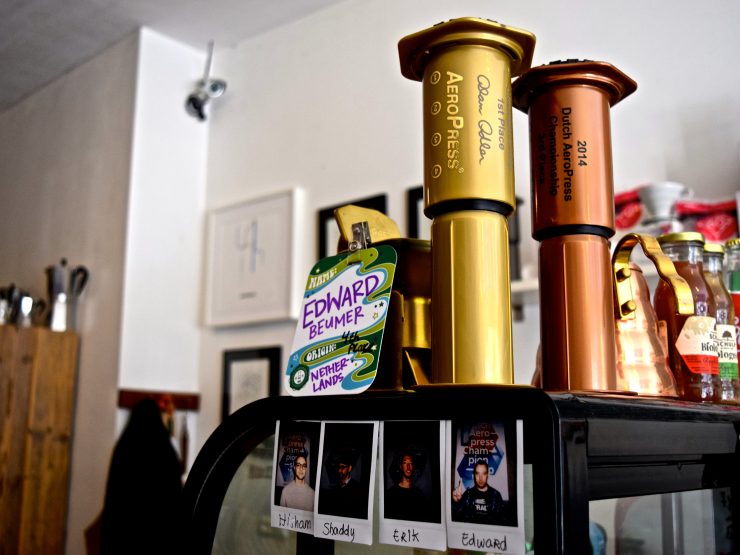
“Desperately trying to make up for not having experience” is what sent Beumer and Oosterhuis scouting the Netherlands’ best cafes. For months, their routine was to walk into a venue, talk to the proprietor for an hour, and record the conversation—then go home, play back the audio, type up key points, print, review, and file. Their folder of notes traveled with them.
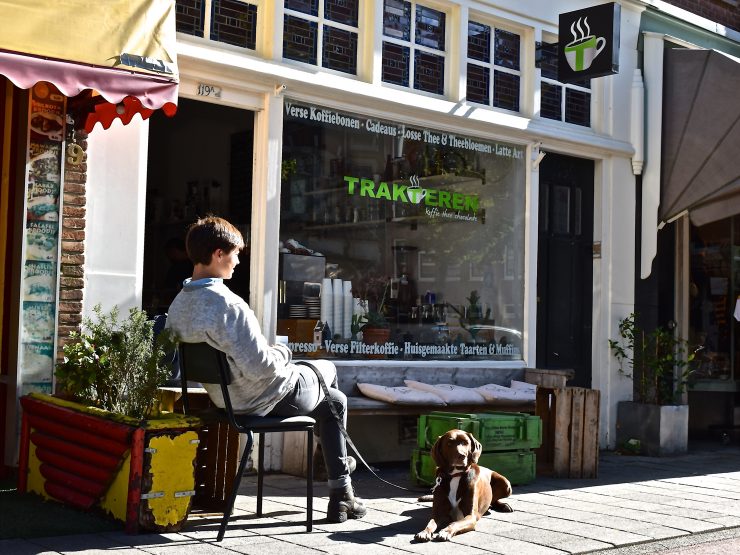
Trakteren is open six days a week. There are no other baristas on staff to help maneuver the three-group La Marzocco Linea Classic, various filter apparatuses, and grinders including an Anfim Super Caimano On-Demand couplet, a Mazzer Super Jolly, and a Mahlkönig Kenia.
Still, these are sympathetic barmen, Oosterhuis with a Neil Young-esque quiet intensity and Beumer with his wry smize. “You really have a social function in these neighborhoods,” says Beumer, reflecting on one aspect of the work for which they received no training. “You really get involved with people’s lives. If they have happy moments, they share them with you. And then they have some not-so-happy moments they also share.”
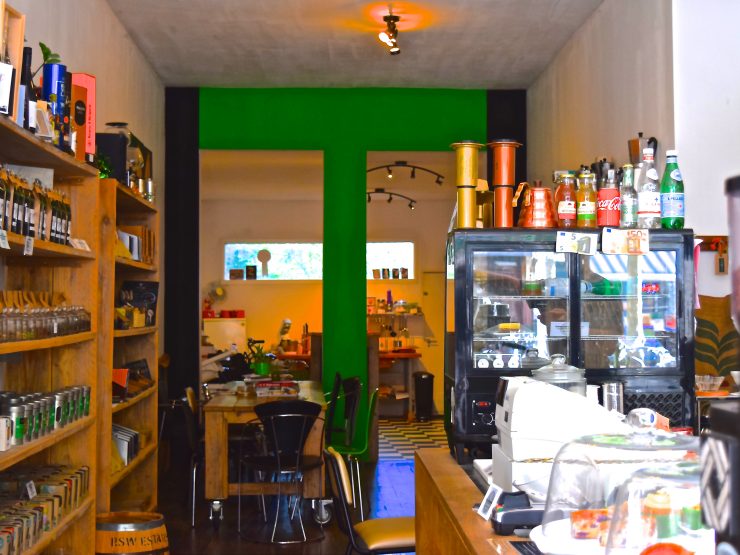
Minutes after winning the Dutch AeroPress Championship, Beumer told me he and Oosterhuis, who competed that night as well, “gave it a little extra” in order “to set a good example” for a couple of Trakteren customers, Hicham Batou and Shaddy Mirza—hitherto coffee laymen who not only trained with the Trakteren duo, but did them proud by participating in the contest and making it to the second round.
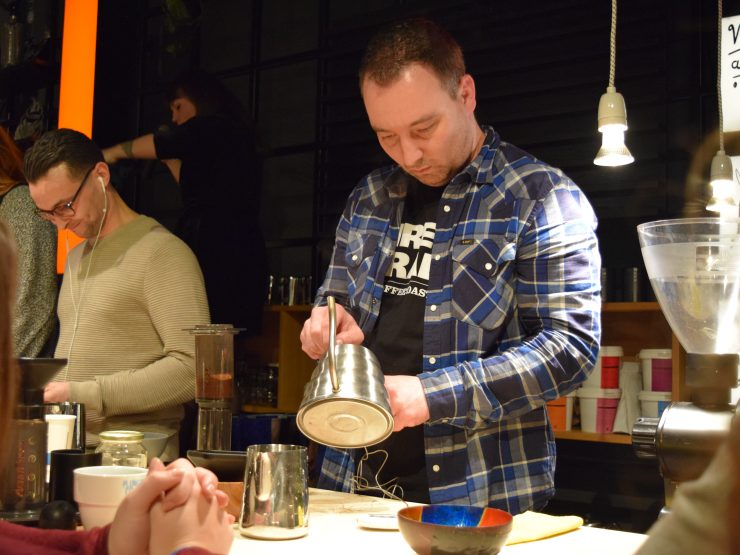
Despite their success, Beumer and Oosterhuis aren’t complacent—both feel they have ’Pressing prowess yet to prove in 2017—though nowadays they are more often the guides than the guided. According to some of their regulars, Trakteren has even inspired the addition of a profession to the local when-I-grow-up wish list.
“We heard this weekend that there are children in the neighborhood who are role-playing as de koffie jongens—‘the coffee boys,’ ” says Beumer, smizing a lot.
Also obviously touched, Oosterhuis mimics a child: “Now I’m Edward. We’re gonna make coffee…”
Karina Hof is a Sprudge staff writer based in Amsterdam. Read more Karina Hof on Sprudge.














